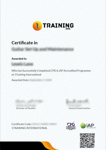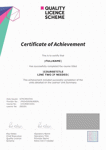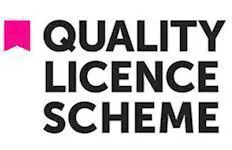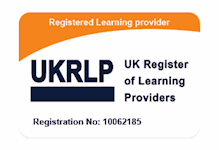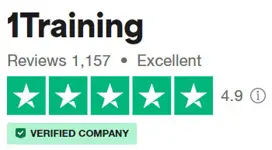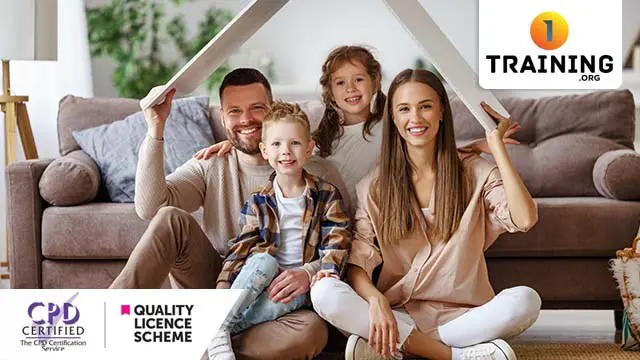
Safeguarding Children and Young People
QLS Endorsed Level 3 Diploma | Free CPD Accredited PDF Certificate | Unlimited Access for 365 Days
1 Training
Summary
- Certificate of completion - Free
- Exam(s) / assessment(s) is included in price
- Tutor is available to students
Add to basket or enquire
Overview
Diploma in Safeguarding Children and Young People at QLS Level 3
Safeguarding children and young people from any harm or mishap is very important to ensure their wellbeing and longevity. Parents are the main parties responsible with this role, after which the teachers and the general society come into picture. Failure to properly safeguard children and young people might lead to disastrous consequences, which is why this Diploma in Safeguarding Children and Young People at QLS Level 3 has been introduced to guide you on how to safeguard children legally and ethically.
This course will thoroughly explore the roles in safeguarding and promoting welfare of children and young people. You will get to discover the various legislation and policies established in relation to safeguard children and young people, followed by modules that will relay the strategies for promoting personal safety for children and young people.
This course will also provide you with the opportunity to help your children achieve more and to develop personal skills to contribute to the safeguarding of children and young people. This esteemed qualification is a great way for you to get into a career that works closely with children and young people.
**This course has been endorsed by the Quality Licence Scheme for its high-quality, non-regulated provision and training programmes. This course is not regulated by Ofqual and is not an accredited qualification. We will be able to advise you on any further recognition, for example progression routes into further and/or higher education. For further information please visit the Learner FAQs on the Quality Licence Scheme website**
Why study at 1Training?
1Training offers the most convenient path to gain skills and training that will give you the opportunity to put into practice your knowledge and expertise in an IT or corporate environment. You can study at your own pace at 1Training and you will be provided with all the necessary material which includes Free CV writing pack to make your learning experience enriching and rewarding.
Achievement
Course media
Description
What Will I Learn?
- Explore and understand the roles in safeguarding and promoting the welfare of children and young people.
- Understand legislation and policies designed to safeguard children and young people.
- Learn how to help children achieve more.
- Develop personal skills to contribute to the safeguarding of children and young people.
- Understand the strategies for promoting personal safety for children and young people and the parental role.
COURSE CURRICULUM
Module 01 : Explore and Understand Roles in Safeguarding and Promoting the Welfare of Children and Young People
- Introduction
- Abuse:
- Physical abuse
- Emotional abuse
- Sexual abuse
- Neglect
- Additional types of abuse in children and young people
- Bullying
- Domestic abuse
- Institutional abuse
- What is a ‘safe and healthy’ environment?
- What is a multi agency team and why do we work with other agencies?
- The department for education states:
- What types of professionals can work in a multi agency team and what do they do?
- How do we communicate effectively and develop working relationships with other practitioners and professionals?
- Referral procedures
- The common assessment framework (CAF)
- Multi agency meetings
- Multi agency working
- How do we establish rapport and respectful relationships with children, young people, their families and carers?
- Appropriate questioning and effective listening
- Boundaries of personal competence and responsibility
- When should I involve others and where can I seek advice and support?
- Confidentiality and the data protection act 1998
- Reporting procedures
- What is the impact of aggression, anger and violence from carers on practice and how do we manage this?
- Further reading
Module 02 : Understand Legislation and Policies Designed to Safeguard Children and Young People
- Introduction
- The children act 1989, amended 2004
- The children act 2004 and the role of the local safeguarding children board (LSCB)
- Local safeguarding children boards regulations (2006)
- The childcare act 2006
- What it means for children, young people and their families
- What it means for the local authority and its partners
- The crime and disorder act 1998
- UN convention on the rights of the child 1989
- The data protection act 1998 and freedom of information act 2000
- The protection of freedoms act (2012)
- Special educational needs (SEN) code of practice 2001
- The equality act (2010)
- Discrimination
- The equality act (2010) and disability
- The equality human rights commission (EHRC) and equality advisory support service (EASS)
- The special educational needs and disability act 2001
- The education act (2011)
- Health and safety at work act 1974
- Safeguarding vulnerable groups act 2006
- How are children and young people protected by law?
- The disclosure and barring service
- Who must be checked?
- Further reading
Module 03 : Helping Children to Achieve More- Change for Children
- Be healthy
- Stay safe
- Enjoy and achieve
- Make a positive contribution
- Achieve economic well-being
- Helping children to achieve more and multi-agency working
- The common assessment framework (CAF)
- Common core of skills for the children’s workforce
- Child and young person’s development
- Supporting transitions
- Multi agency working
- Sharing information
Module 04 : Develop Personal Skills to Contribute to The Safeguarding of Children and Young People
- Introduction
- The roles, responsibilities and values of family members:
- How parents can ensure positive outcomes for their children and factors on parenting
- Further reading
Module 05 : Strategies for Promoting Personal Safety for Children and Young People and The Parental Role
- Personal vulnerability and how professionals can protect themselves from allegations of abuse
- Risks to professionals
Method of Assessment
In order to complete the Diploma in safeguarding children and young people – level 3 successfully, all students are required to complete a series of assignments. The completed assignments must be submitted via the online portal. Your instructor will review and evaluate your work and provide your feedback based on how well you have completed your assignments.
Certification
★★Quality Licence Scheme Certification★★
At the completion of this course successful learners will receive a Certificate of Achievement from Quality Licence Scheme and a Learner Unit Summary (which lists the components the learner has completed as part of the course).
✤Certification Fee (Printed Quality Licence Scheme Certificate) – £24 ONLY!!
★★CPD Accredited Certificate★★
Learners who complete the course successfully will receive a CPD Accredited Certificate.
✤CPD Accredited Certification Fee (E Certificate/ PDF Copy) – FREE!
✤CPD Accredited Certification Fee (Printed Certificate/ Hard Copy) – £19 ONLY!!
Course Code: QLS-04847
Access Duration
The course will be directly delivered to you, and you have 12 months access to the online learning platform from the date you joined the course. The course is self-paced and you can complete it in stages, revisiting the lectures at any time.
Endorsed by
The Quality Licence Scheme is part of the Skills and Education Group, a charitable organisation that unites education and skills-orientated organisations that share similar values and objectives. With more than 100 years of collective experience, the Skills and Education Group’s strategic partnerships create opportunities to inform, influence and represent the wider education and skills sector.
The Skills and Education Group also includes two nationally recognised awarding organisations; Skills and Education Group Awards and Skills and Education Group Access. Through our awarding organisations we have developed a reputation for providing high-quality qualifications and assessments for the education and skills sector. We are committed to helping employers, organisations and learners cultivate the relevant skills for learning, skills for employment, and skills for life.
Our knowledge and experience of working within the awarding sector enables us to work with training providers, through the Quality Licence Scheme, to help them develop high-quality courses and/or training programmes for the non-regulated market.
Other benefits
- Written and designed by the industry’s finest expert instructors with over 15 years of experience
- Repeat and rewind all your lectures and enjoy a personalised learning experience
- Unlimited 12 months access from anywhere, anytime
- Save time and money on travel
- Learn at your convenience and leisure
- Eligible for a TOTUM discount card
Who is this course for?
- Students
- Job seekers
- Professionals related to the welfare of children and young people
- Anyone interested in learning about safeguarding children and young people
Requirements
- This course requires no formal prerequisites and this certification is open to everyone
Career path
- Social worker – £28,205 per annum
- Childcare Worker – £14,642 per annum
- School Counsellor – £20,828 per annum
- Child advocate – £25,000 per annum
Questions and answers
Currently there are no Q&As for this course. Be the first to ask a question.
Certificates
Certificate of completion
Digital certificate - Included
Request for your Original Printed Quality Licence Scheme Certificate (Hardcopy) Certification Fee : £24 ONLY!
Reviews
Currently there are no reviews for this course. Be the first to leave a review.
Legal information
This course is advertised on reed.co.uk by the Course Provider, whose terms and conditions apply. Purchases are made directly from the Course Provider, and as such, content and materials are supplied by the Course Provider directly. Reed is acting as agent and not reseller in relation to this course. Reed's only responsibility is to facilitate your payment for the course. It is your responsibility to review and agree to the Course Provider's terms and conditions and satisfy yourself as to the suitability of the course you intend to purchase. Reed will not have any responsibility for the content of the course and/or associated materials.

